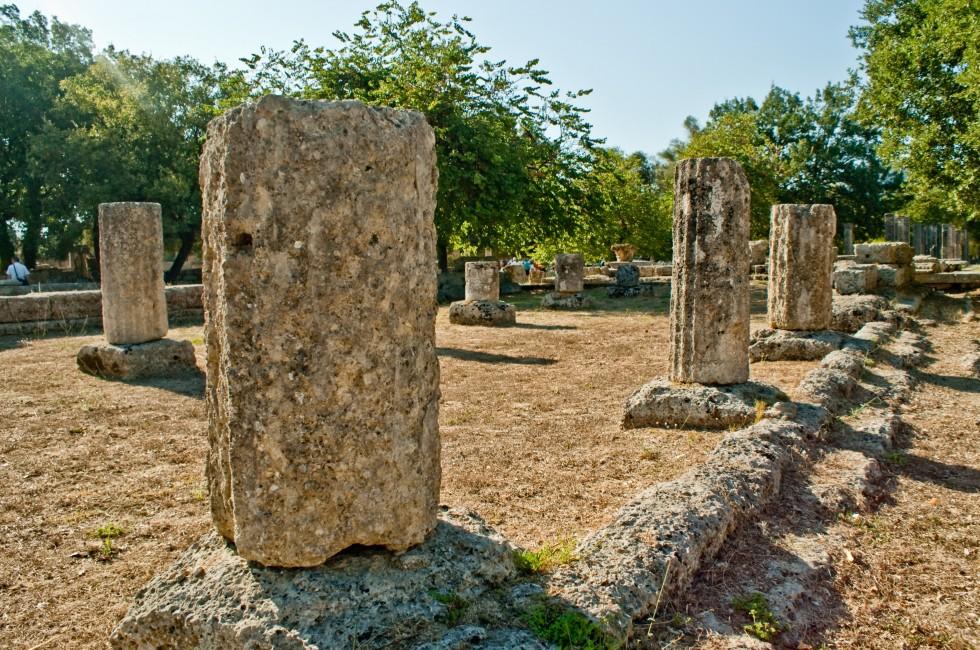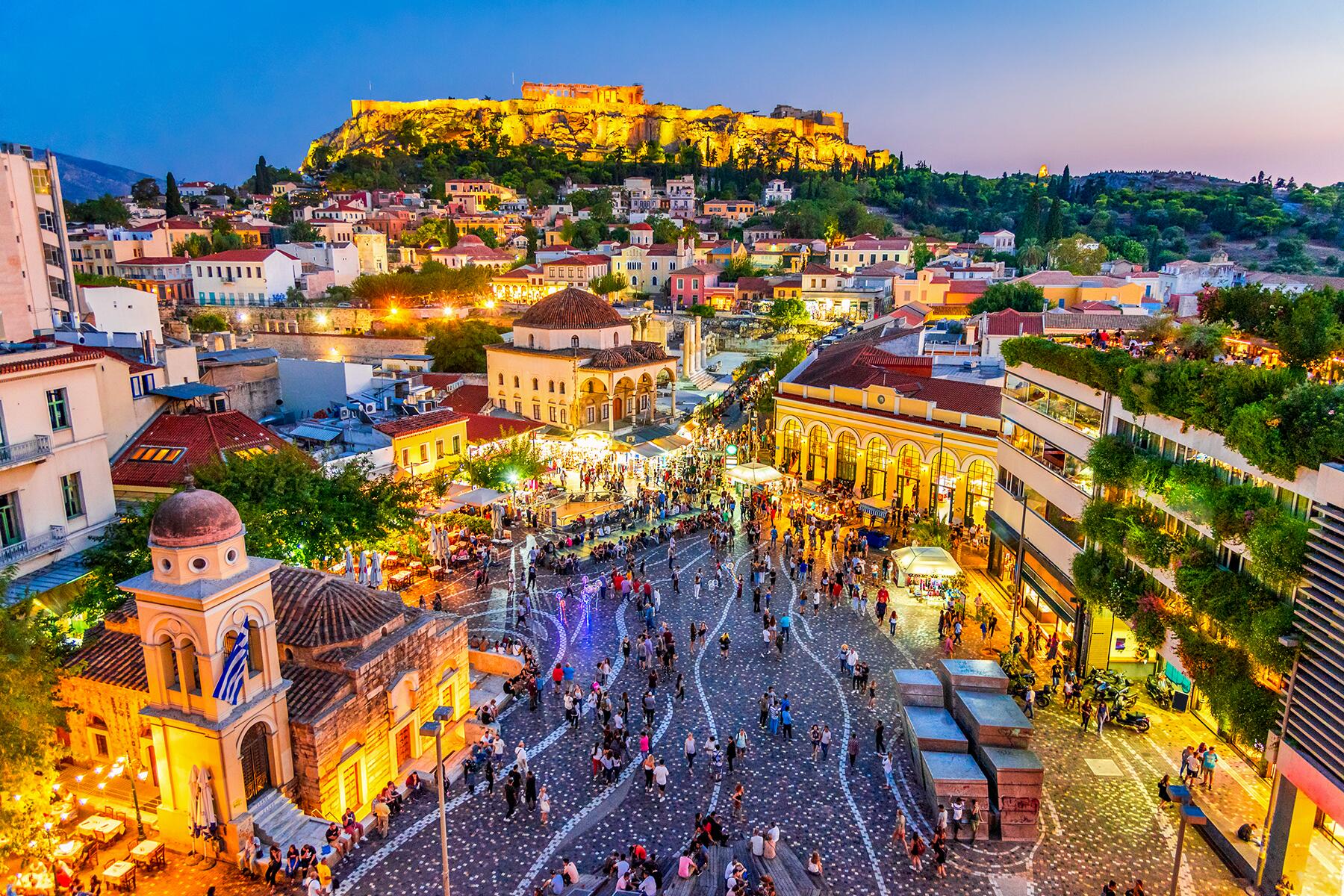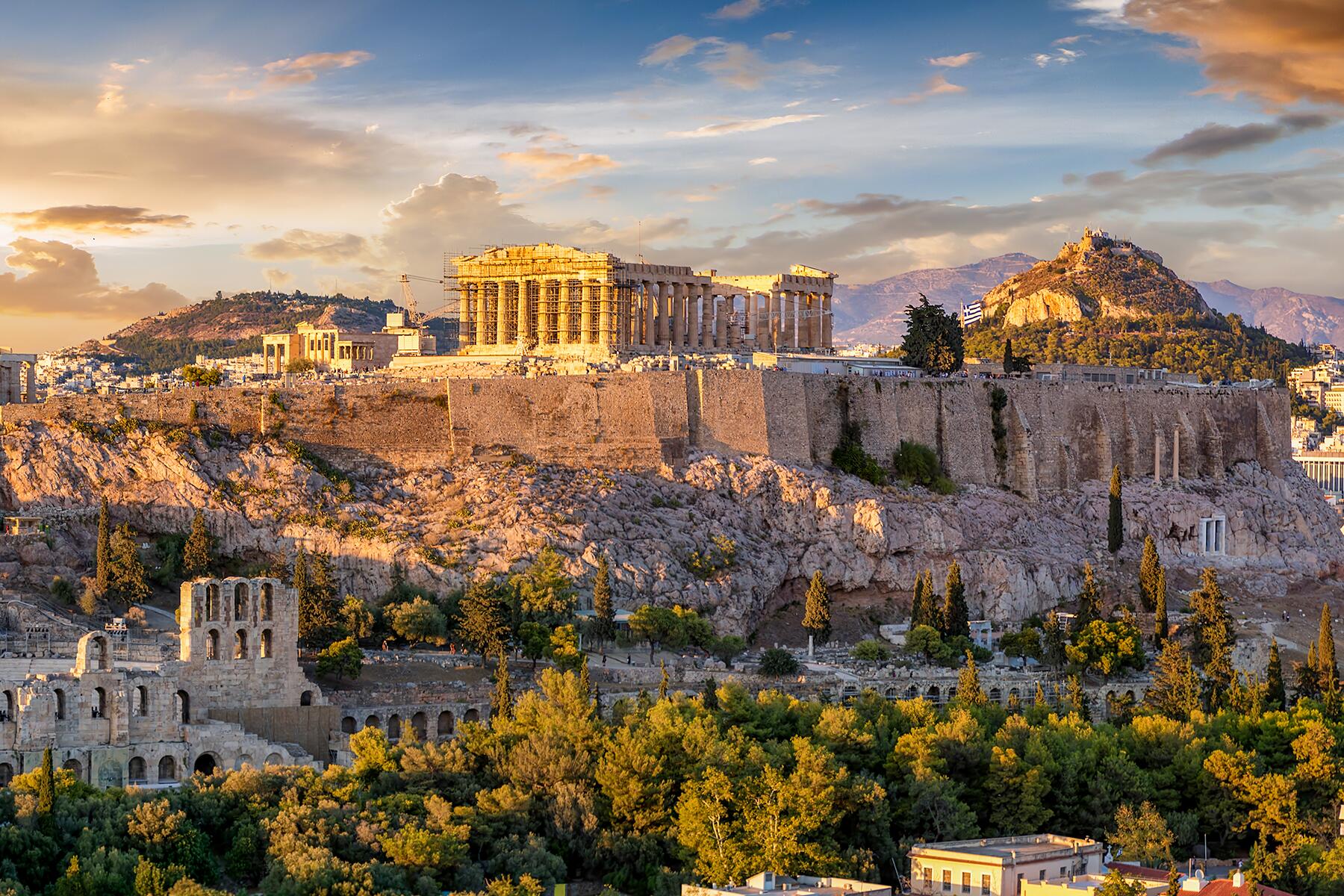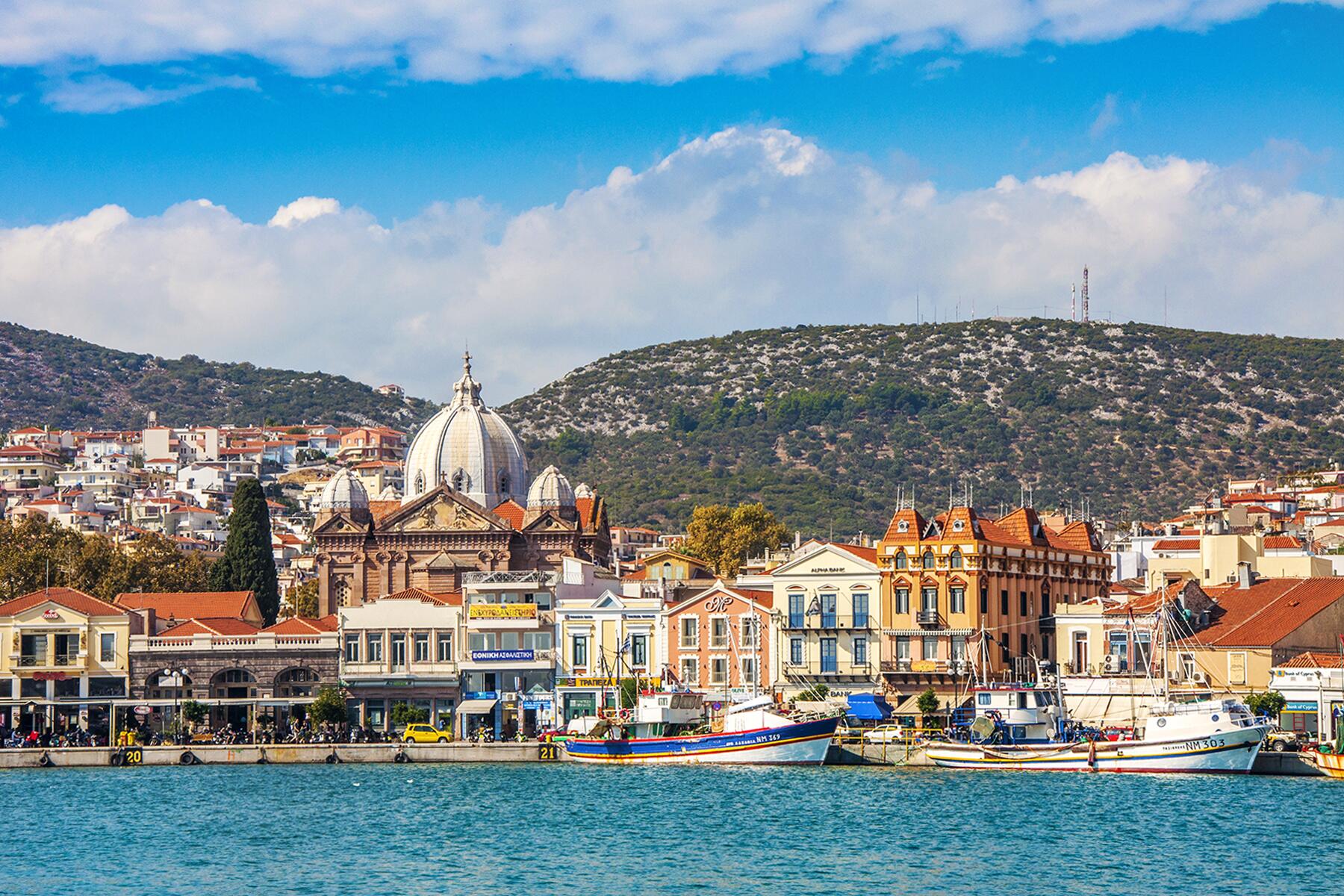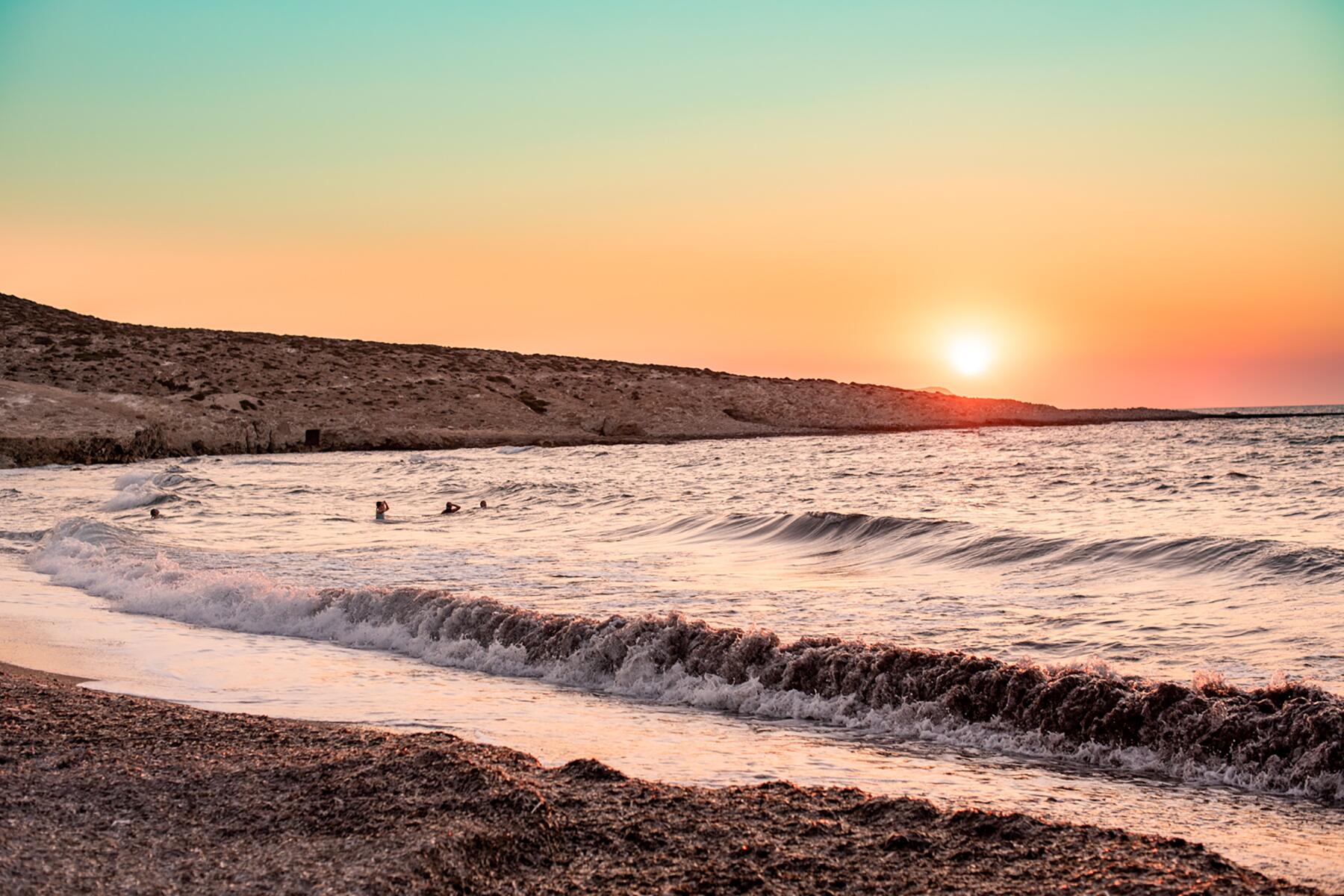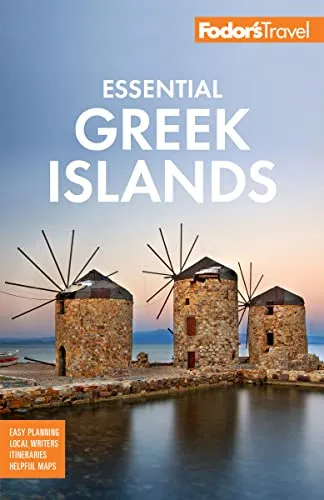The Peloponnese
The Peloponnese
Over the millennia the rugged terrain of the Peloponnese—a vast region that hangs like a large leaf from the stem of the Corinthian isthmus—has nourished kingdoms and empires. The stony landmarks of these ancient achievers litter the ground liberally, from Epidaurus to Olympia to Ancient Messene.
This, indeed, is the fabulous Greece of history and myth: if Hercules walked the earth (some historians now believe he was an actual early king of Argos or Tiryns), his main stomping grounds were here.
Traces of these lost realms—ruined Bronze Age citadels, Greek and Roman temples and theaters, and the fortresses and settlements of the Byzantines, Franks, Venetians, and Turks—attest to this land’s historical richness. Four thousand years of history are more fully illustrated in thi...
Read MoreOver the millennia the rugged terrain of the Peloponnese—a vast region that hangs like a large leaf from the stem of the Corinthian isthmus—has nourished kingdoms and empires. The stony landmarks of these ancient achievers litter the ground liberally, from Epidaurus to Olympia to Ancient Messene.
This, indeed, is the fabulous Greece of history and myth: if Hercules walked the earth (some historians now believe he was an actual early king of Argos or Tiryns), his main stomping grounds were here.
Traces of these lost realms—ruined Bronze Age citadels, Greek and Roman temples and theaters, and the fortresses and settlements of the Byzantines, Franks, Venetians, and Turks—attest to this land’s historical richness. Four thousand years of history are more fully illustrated in this region than nearly anywhere else in Europe. No wonder visitors who spend less than a week here wind up asking themselves why they didn't allot more time to this fascinating area of Greece, the country’s most ruin-packed terrain, ground zero for anyone even remotely interested in the ancient past—with Byzantine wonders entering the mix at Monemvasia and Mystras. Plus, if you wish to forgo clamoring over ruins for a day or two, it’s easy to find a mountain path or isolated stretch of sand on which to relax.
Time seems to have stood still in the smaller towns here, and even in the cities you'll encounter a lifestyle that remains more traditionally Greek than that of some of the more developed islands. The joy of exploring this region comes as much from watching life transpire in an animated town square or a remote mountain village as it does from seeing the impressive ruins, and the opportunity to discover this on foot is perhaps the greatest pleasure of all. Some of Greece's best hikes and trails wind the foothills of the Taygettus and Arcadian ranges, plunging into steep-sided gorges filled with medieval monasteries or rising up along millennia-old cobbled roads.
"Pelopónnisos" means "Island of Pelops," though only the narrow Corinth canal separates it from the mainland. Pelops was the son of the mythical Tantalos, whose tragic descendants dominate the half-legendary Mycenaean centuries. The myths and legends surrounding Pelops and his family—Atreus, Agamemnon, Orestes, and Electra, among others—provided the grist for poets and playwrights from Homer to Aeschylus and enshroud many of the region's sites to this day.
A walk through the Lion Gate into Mycenae, the citadel of Agamemnon, brings the Homeric epic to life, and the massive walls of nearby Tiryns glorify the age of might. Eastward lies Corinth, the economic superpower of the 7th and 6th centuries BC, and also Epidaurus, the sanctuary of Asklepios, god of healing, where in summer Greek dramas are re-created in the ancient theater, one of the finest and most complete to survive.
In the western side of the Peloponnese is one of Greece's greatest ancient sites, Olympia, the sanctuary of Zeus and site of the ancient Olympic Games. Ancient Messene, with its mammoth fortifications from the 4th century BC, is on the sandy cape of Messinia, in the southern part of the region.
Fast forward almost two millennia. By the 13th century the armies of the Fourth Crusade (in part egged on by Venice) had conquered the Peloponnese after capturing Constantinople in 1204. But the dominion of the Franks was brief, and Byzantine authority was restored under the Palaiologos dynasty. Soon after Constantinople fell in 1453, the Turks, taking advantage of an internal rivalry, crushed the Palaiologoi and helped themselves to the Peloponnese.
In the following centuries the struggle between the Venetians and the Ottoman Turks played out across Greece, their influence easily discerned today in cities such as Nafplion and Monemvasia, where Turkish mosques and fountains join the ruins of Venetian fortifications. Eventually, Greece would find its own voice and the modern history of the country began in the Peloponnese. Rebellion against Turkish rule ignited here. A visit to the Mani reveals the history of the clans, who rose up to the join the rebel attack on Kalamata in 1821, the first major city to fall to the Greeks. Others swiftly followed, though it wouldn't be until the end of that decade that the Turks finally withdrew. Nafplion even became the recognized capital of Greece from 1829 until the move to Athens in 1834.
Recommended Fodor’s Video
Hotels
Things to Do
Things to Do
Explore Things to Do
Find the perfect tours and activities in The Peloponnese.
Where to Eat
Where to Eat
Need to Know
Need to Know
Language
GreekNearby Airports
GPAElectrical Outlets
200v/50 cycles; electrical plugs have two round prongsCurrency
EuroLanguage
GreekElectrical Outlets
200v/50 cycles; electrical plugs have two round prongsCurrency
EuroNearby Airports
GPAWhen to Go
As in much of Greece, late April and May provide optimum conditions for exploration—hotels, restaurants, and sites have begun to extend their...Read More
Neighborhood Guides
Discover the best neighborhoods in The Peloponnese with curated recommendations from our editors.
essentials
transportation
- Air
- Boat and Ferry
- Bus
- Car
- Cruise Travel to Gythion
- Cruise Travel to Katakolon
- Cruise Travel to Monemvasia
- Cruise Travel to Nafplion
- Taxi
- Train
resources
When to Go
As in much of Greece, late April and May provide optimum conditions for exploration—hotels, restaurants, and sites have begun to extend their...Read More
Neighborhood Guides
Discover the best neighborhoods in The Peloponnese with curated recommendations from our editors.
When to Go
As in much of Greece, late April and May provide optimum conditions for exploration—hotels, restaurants, and sites have begun to extend their...Read More
Neighborhood Guides
Discover the best neighborhoods in The Peloponnese with curated recommendations from our editors.
essentials
transportation
- Air
- Boat and Ferry
- Bus
- Car
- Cruise Travel to Gythion
- Cruise Travel to Katakolon
- Cruise Travel to Monemvasia
- Cruise Travel to Nafplion
- Taxi
- Train
resources
Articles
Articles See All
Guidebooks
Guidebooks
Our worldwide travel correspondents bring you the best and most up-to-date coverage of over 7,500 global destinations.
Shop NowFodor's Essential Greece: with the Best of the Islands
Whether you want to explore the Acropolis of Athens, watch the sunset in Santorini, or...
Fodor's Essential Greek Islands: with the Best of Athens
Whether you want to explore the Acropolis of Athens, watch the sunset in Santorini,or...
